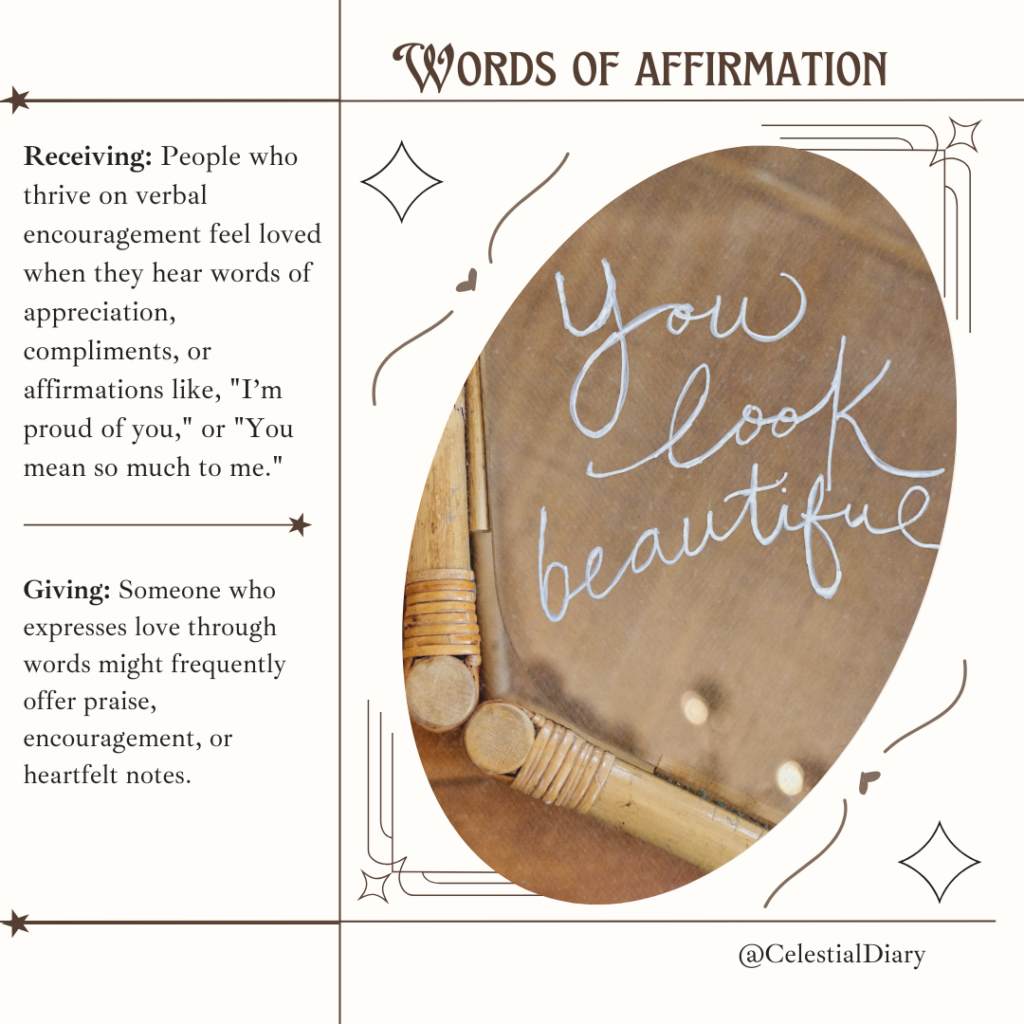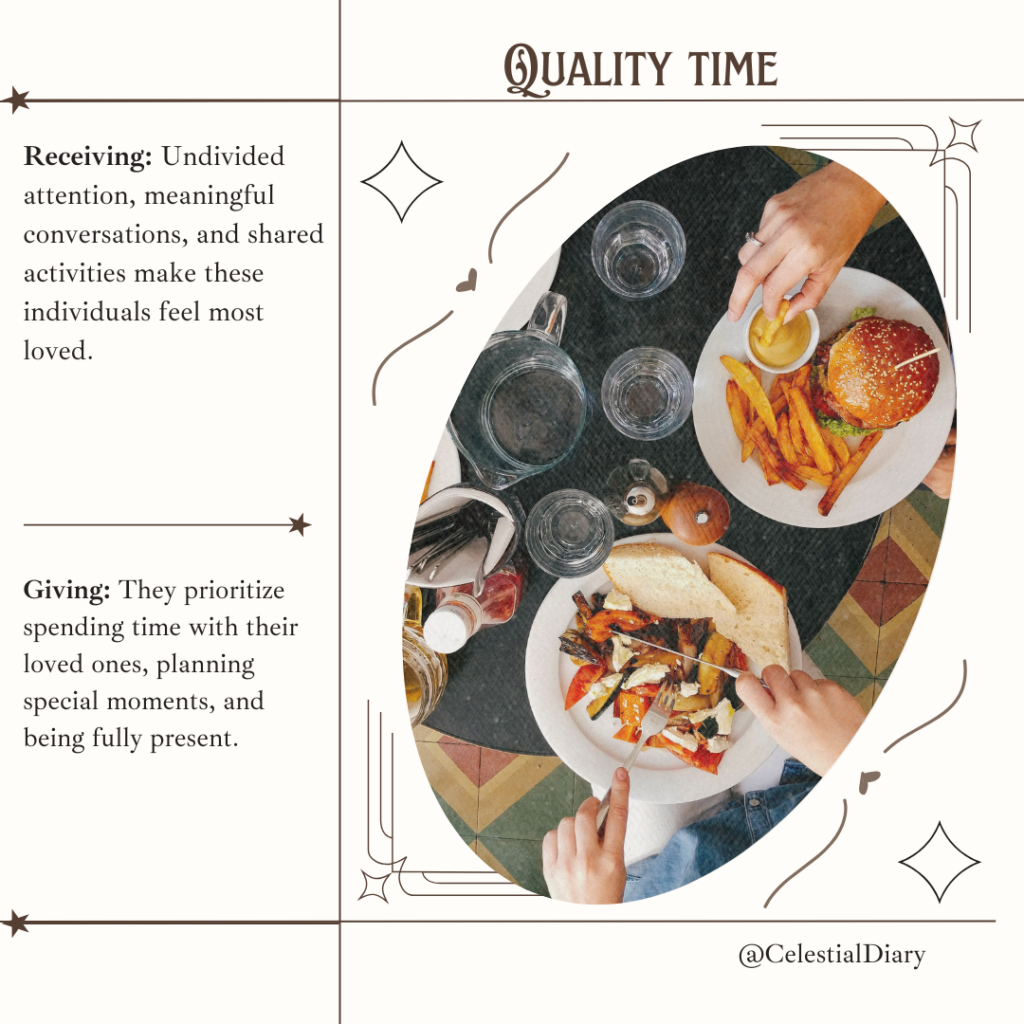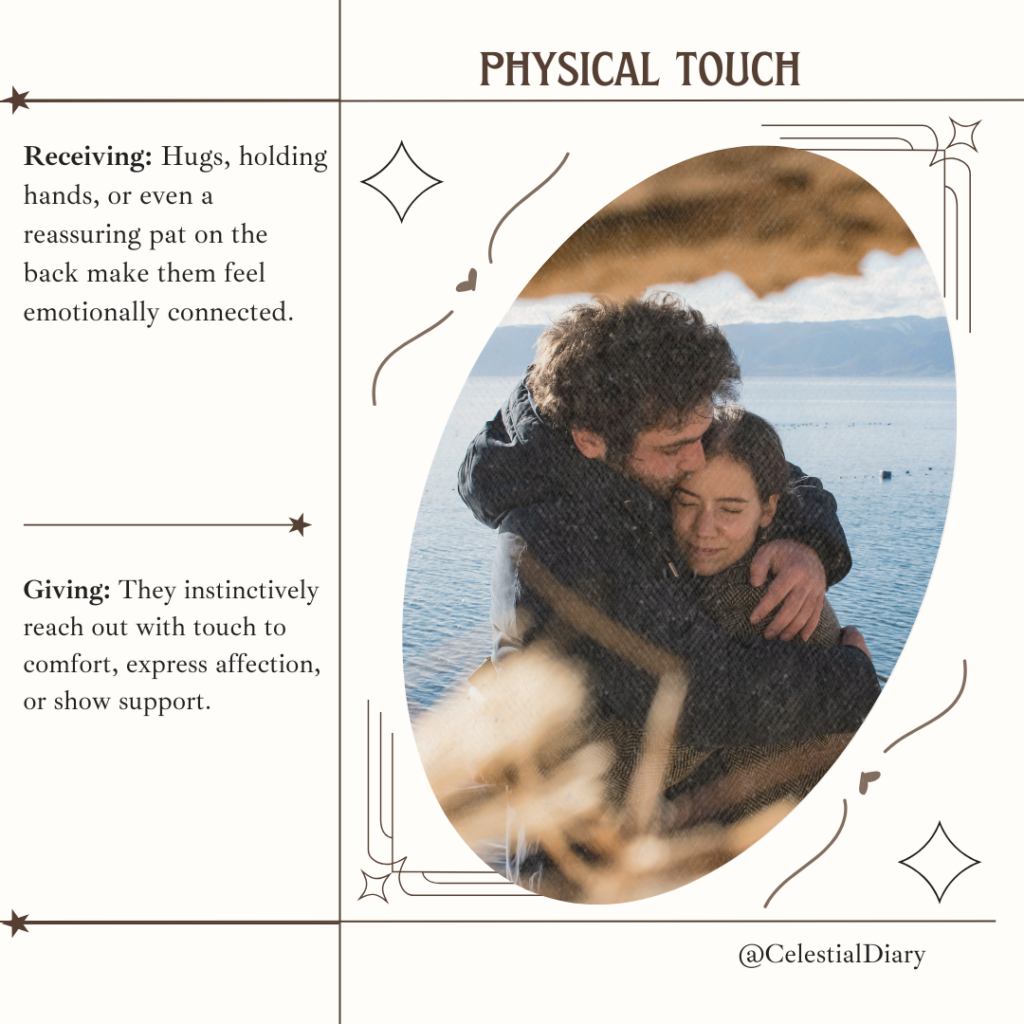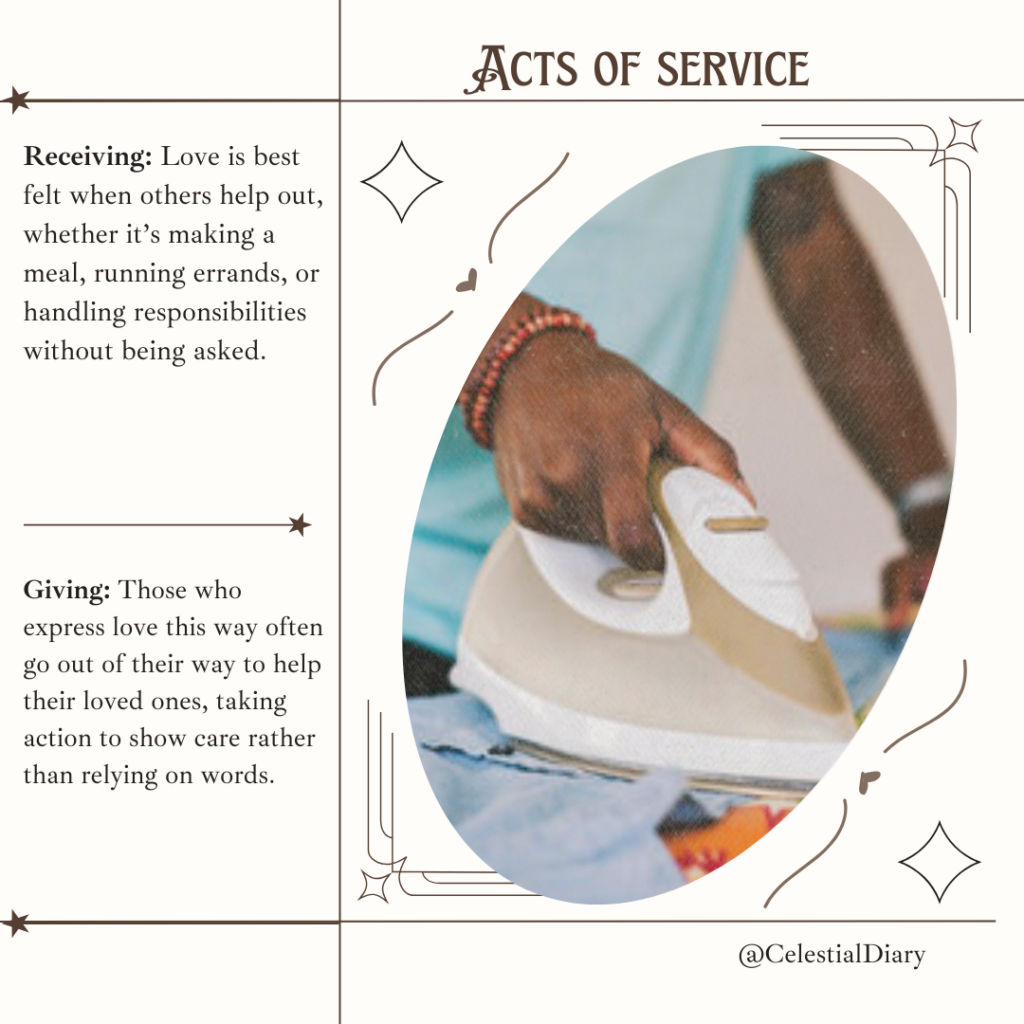Before the month of February runs out, there’s one more thing to think about when it comes to love!
Love is a universal language, but the way we express and receive it differs from person to person. Dr. Gary Chapman’s concept of love languages talks about five ways people communicate love: words of affirmation, acts of service, receiving gifts, quality time, and physical touch. Understanding these love languages especially in how we give and how we receive love can strengthen relationships, deepen connections, and prevent misunderstandings.
The Five Love Languages:
Swipe through the images below to discover the different love languages.
Understanding the love languages of those around us; family, friends, or romantic partners…is important. You may love someone deeply, yet they might feel unloved if your expressions of love don’t align with their needs. Likewise, you may miss the love in their actions simply because it’s not communicated in your love language.
- Miscommunication in relationships: Imagine someone who needs words of affirmation but their partner expresses love through acts of service. While their partner may be fixing things or helping out, the other person still feels unloved because they miss the verbal encouragement.
- Emotional connection: When you know someone’s love language, you can intentionally show love in a way they understand.
- Conflict and resentment: A mismatch in love languages can lead to frustration. Understanding your partner’s or friend’s love language reduces misunderstandings and builds harmony.
- Thoughtful loving: We often show love the way we want to receive it, but learning someone else’s love language requires selflessness and intentional effort.
Our love languages not only differ in how we show love, but also in how we’d like to receive it. Depending on the type of relationship, our love languages can also vary. A mix-and-match is definitely possible.
Differences in relationships
Depending on the emotional needs of the relationship, your love language might vary. What you need from a friend, like companionship, isn’t the same as what you need from a partner, such as intimacy. Cultural values and upbringing also influence how we express and receive love. Even within the same culture or family, individual boundaries and comfort levels shape how we connect, influencing our love languages.
1. With Family
Your family relationships are deeply rooted, but not always expressive in the same way as friendships or romance.
🔹 Example: You might value words of affirmation, acts of service or quality time with family because verbal encouragement from a parent or sibling means a lot.
- Hearing “I’m proud of you” or “I love you” may feel reassuring. Getting help without having to ask can make you feel seen and quality time deepens the bonds you already have.
- However, you may not crave physical touch as much from family, especially if you weren’t raised in an affectionate household.
2. With Friends
Friendship dynamics tend to be more casual and shared rather than deeply intimate (this is different for everyone of course).
🔹 Example: You might feel most connected to friends through quality time or acts of service; long conversations, road trips, help in time of need, spontaneous hangouts.
- A friend who regularly makes time for you, even in their busy schedule, makes you feel valued.
- Words of affirmation (constant “I appreciate you” messages) might not be as necessary for you in friendships as they are with family.
3. With a Romantic Partner
Romantic relationships involve emotional and physical intimacy, which can shift love language priorities and create different dynamics.
🔹 Example: Even if you don’t prioritize physical touch or quality time with family or friends, it might become your main love language in a relationship because physical closeness creates a deep bond.
- Holding hands, cuddling, catching up and small gestures like a reassuring touch can make you feel loved.
- You might also need words of affirmation from a partner more than from friends or family to feel secure.
Understanding love languages isn’t just for romantic relationships or special occasions! It applies to friendships, family, and even workplace interactions. When we take the time to learn how others feel loved, we build stronger, healthier connections and create relationships that thrive.
What’s your love language? How do you express love to others? Whether you’re single or in a relationship, take time to reflect on this. It’s normal for love languages to shift depending on the relationship so understanding how you give and receive love can strengthen your connections. Evaluate your relationships, recognize any gaps, and make adjustments to ensure love is expressed and received meaningfully.
Stay Blessed x








2 responses to “Love Languages: Friendships, Family, and Romance”
You cooked on this one per usual 🔥🤝🏾
Thank you!